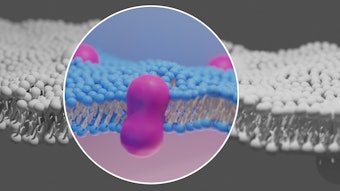
A study led by researchers from Yale University has confirmed the health benefits of moderate calorie restrictions in humans—and identified a key protein that could be harnessed to extend health in humans. The findings were published in Science (February 10, 2022).
The research was based on results from the Comprehensive Assessment of Long-term Effects of Reducing Intake of Energy (CALERIE) clinical trial, the first controlled study of calorie restriction in healthy humans. For the trial, researchers first established baseline calorie intake among more than 200 study participants.
Related: The Role of Diet and Nutrition in Skin Disease
They asked a share of those participants to reduce their calorie intake by 14% while the rest continued to eat as usual. The researchers then analyzed the long-term health effects of calorie restriction over the next two years.
The overall aim of the clinical trial was to see if calorie restriction is as beneficial for humans as it is for lab animals, said Vishwa Deep Dixit, the Waldemar Von Zedtwitz Professor of Pathology, Immunobiology, and Comparative Medicine, and senior author of the study. And if it is, he said, researchers wanted to better understand what calorie restriction does to the body specifically that leads to improved health.
Related: Fermented Foods Linked to Gut Microbiome Diversity
Since previous research has shown that calorie restriction in mice can increase infections, Dixit also wanted to determine how calorie restriction might be linked to inflammation and the immune response. “Because we know that chronic low-grade inflammation in humans is a major trigger of many chronic diseases and, therefore, has a negative effect on life span,” he said. “Here we’re asking: What is calorie restriction doing to the immune and metabolic systems and if it is indeed beneficial, how can we harness the endogenous pathways that mimic its effects in humans?”
Dixit and his team started by analyzing the thymus. They used magnetic resonance imaging (MRI) to determine if there were functional differences between the thymus glands of those who were restricting calories and those who were not. They found that the thymus glands in participants with limited calorie intake had less fat and greater functional volume after two years of calorie restriction. But participants who weren’t restricting their calories had no change in functional volume.
Related: Aging Out: Telomere Shortening, Cell Senescence Reversed by Hyperbaric Oxygen Therapy
“The fact that this organ can be rejuvenated is, in my view, stunning because there is very little evidence of that happening in humans,” said Dixit. “That this is even possible is very exciting.”
With such a dramatic effect on the thymus, Dixit and his colleagues expected to also find effects on the immune cells that the thymus was producing, changes that might underlie the overall benefits of calorie restriction. But when they sequenced the genes in those cells, they found there were no changes in gene expression after two years of calorie restriction.
This observation required the researchers to take a closer look, which revealed a surprising finding: “It turns out that the action was really in the tissue microenvironment not the blood T cells,” Dixit said. “We found remarkable changes in the gene expression of adipose tissue after one year that were sustained through year two.”
Related: Newsmakers: Transcription Factor Ybx1
The researcher team then set out to see if any of the genes they identified in their analysis might be driving some of the beneficial effects of calorie restriction. They honed in on the gene for PLA2G7 (group VII A platelet activating factor acetylhydrolase), which was one of the genes significantly inhibited following calorie restriction. PLA2G7 is a protein produced by macrophages.
To better understand if PLA2G7 caused some of the effects observed with calorie restriction, the researchers also tracked what happened when the protein was reduced in mice in a laboratory experiment.
“We found that reducing PLA2G7 in mice yielded benefits that were similar to what we saw with calorie restriction in humans,” said Olga Spadaro, a former research scientist at the Yale School of Medicine and lead author of the study. Specifically, the thymus glands of these mice were functional for a longer time, the mice were protected from diet-induced weight gain and they were protected from age-related inflammation.
“These findings demonstrate that PLA2G7 is one of the drivers of the effects of calorie restriction,” said Dixit. “Identifying these drivers helps us understand how the metabolic system and the immune system talk to each other, which can point us to potential targets that can improve immune function, reduce inflammation and potentially even enhance healthy lifespan.”
“There’s so much debate about what type of diet is better—low carbohydrates or fat, increased protein, intermittent fasting, etc.—and I think time will tell which of these are important,” continued Dixit. “But CALERIE is a very well-controlled study that shows a simple reduction in calories, and no specific diet, has a remarkable effect in terms of biology and shifting the immuno-metabolic state in a direction that’s protective of human health. So, from a public health standpoint, I think it gives hope.”











